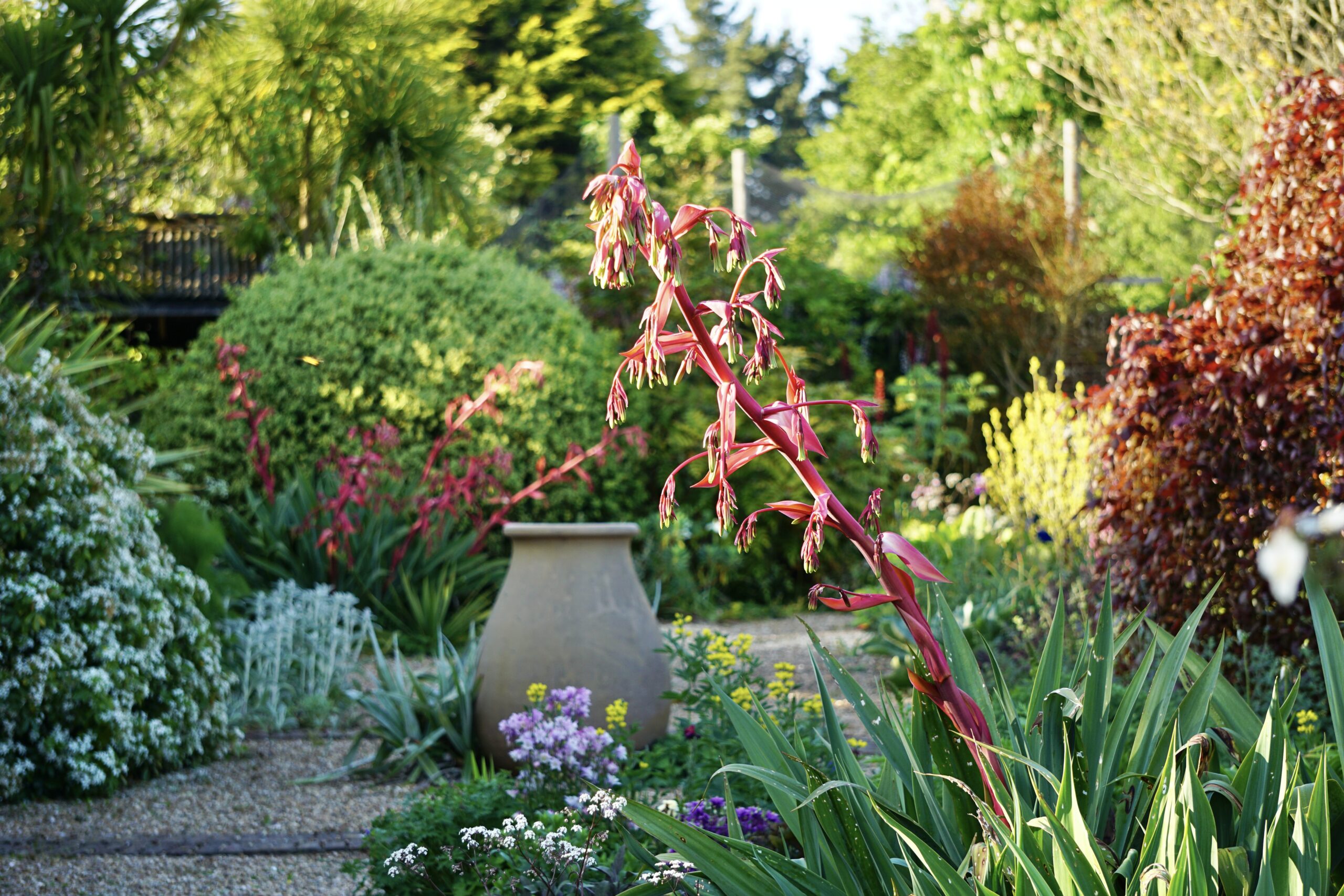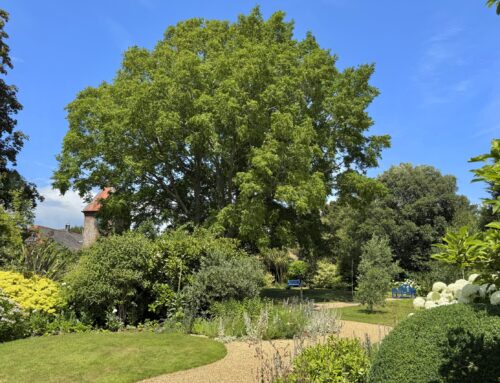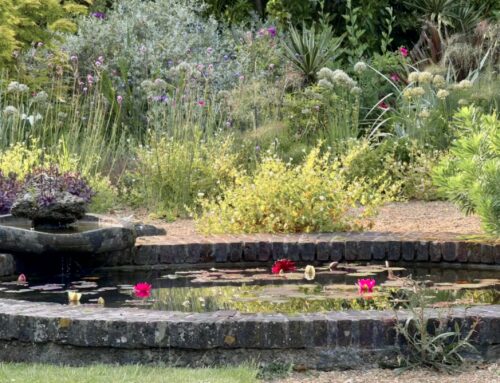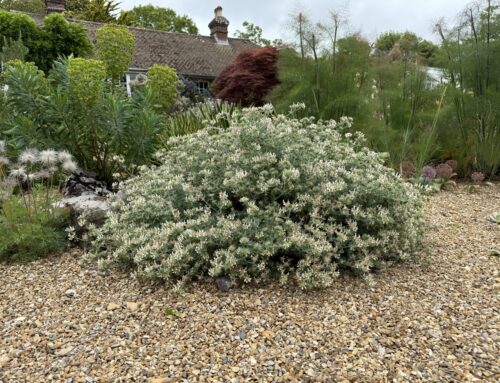Plant-of-the-month: Beschornaria yuccoides
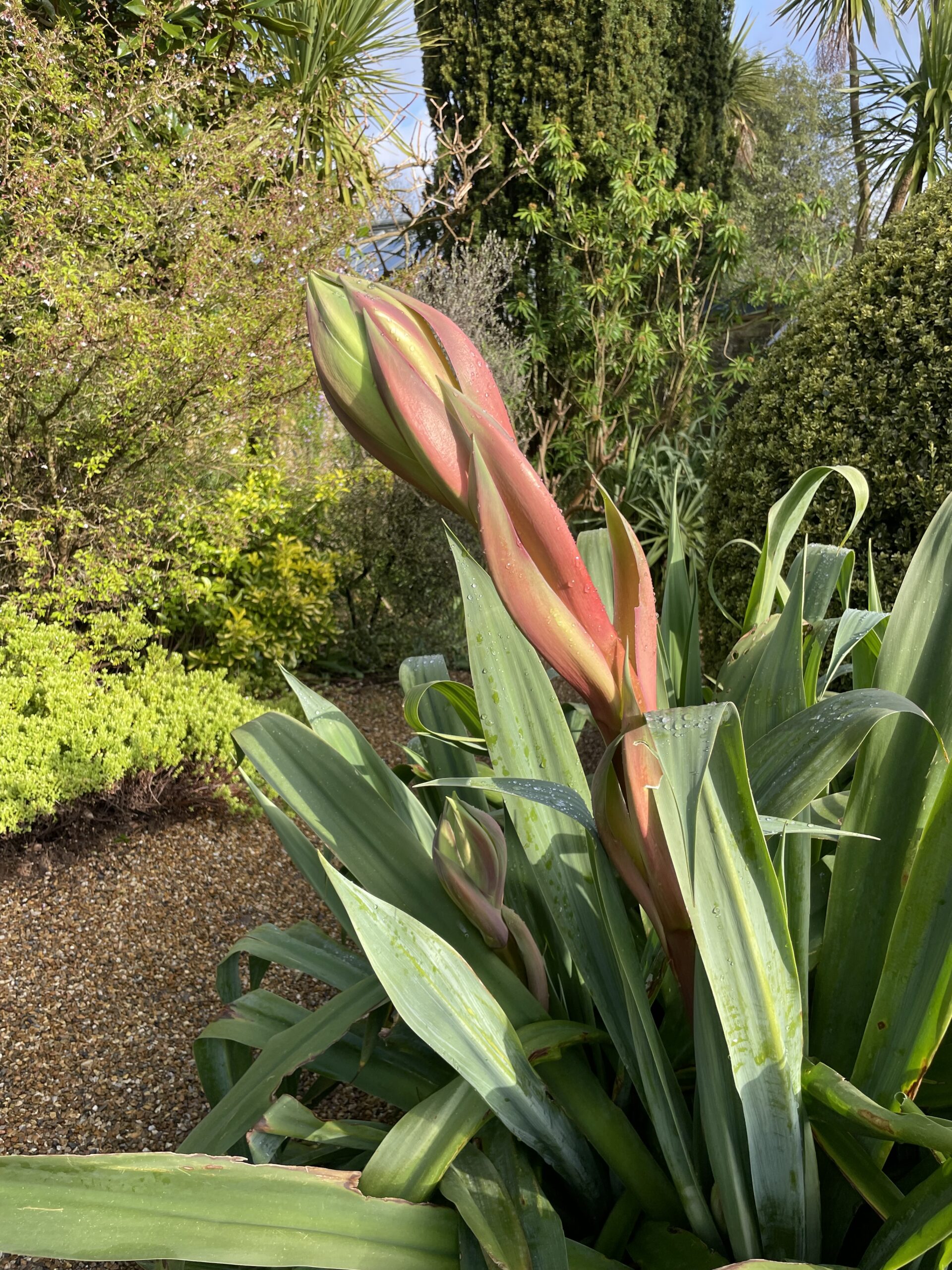 Mexican Lily (Beschornaria yuccoides) is a clump-forming, spiky yucca that is that is in the Asparagaceae family and hence is related to asparagus. It has stiff, grey-green leathery leaves that grow to about 1 metre (3 feet) tall and look fantastic year-round, but it is the flowers that are the real showstoppers.
Mexican Lily (Beschornaria yuccoides) is a clump-forming, spiky yucca that is that is in the Asparagaceae family and hence is related to asparagus. It has stiff, grey-green leathery leaves that grow to about 1 metre (3 feet) tall and look fantastic year-round, but it is the flowers that are the real showstoppers.
Unexpected and dramatic, they are Trifid-like, beginning when the large light yellow and pink buds begin to emerge in April. By the end of May they extend up to 1.5 metres (4 feet). The stems are bright red and the flowers, which appear along the end of the stem are yellow green. It is impossible to ignore them!
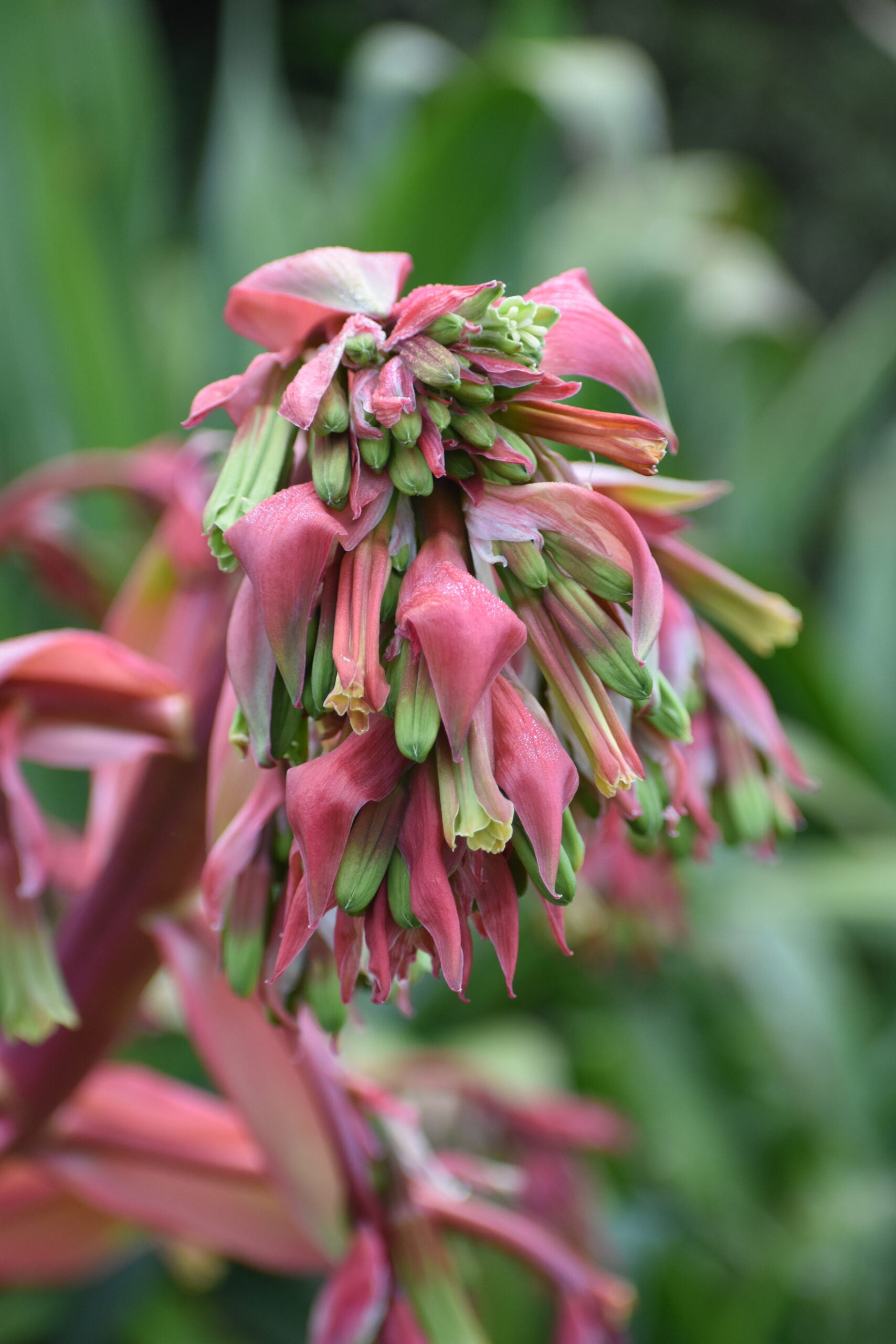 As you might expect from its common name, this plant is native to northern Mexico where it grows at 2,600 metres (8,500 feet) to 3,400 metres (11,000 feet) in canyons and ravines among pine, oak, and fir trees. Its architectural shape makes it a lovely specimen plant though here at Denmans it is primarily grown throughout the garden in to blends with other plantings.
As you might expect from its common name, this plant is native to northern Mexico where it grows at 2,600 metres (8,500 feet) to 3,400 metres (11,000 feet) in canyons and ravines among pine, oak, and fir trees. Its architectural shape makes it a lovely specimen plant though here at Denmans it is primarily grown throughout the garden in to blends with other plantings.
The Latin genus honors Friedrich Wilhelm Christian Beschorner (1806-1873), a German amateur botanist and its epithet, yuccoides, indicates it resembles yuccas (the botanical name of the genus Yucca and ‘oides’ is Greek for “likeness”).
Mexican Lilies need a sheltered location because they do not tolerate frost and are only hardy in mild areas where temperatures do not fall below -5 to 1C Celsius (or 33 degrees Fahrenheit). We put fleece on them when temperatures fall below freezing to protect their buds and leaves.
They are drought tolerant and grows best in well-drained humus-rich loam. They prefer full sun, but at least one of our specimens tolerates a partly shady position in the Acer Walk.

